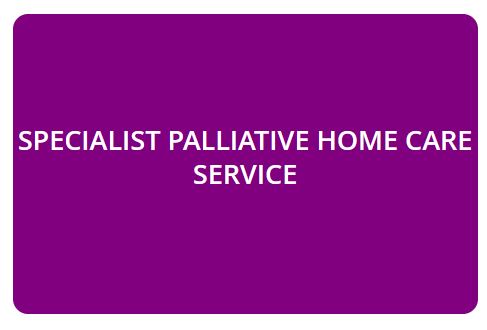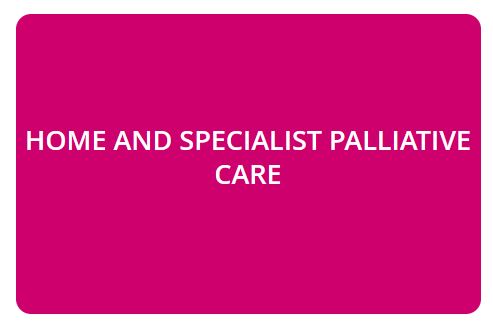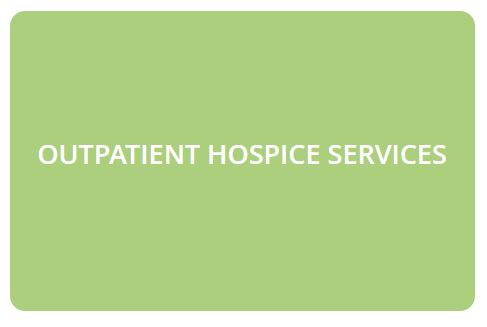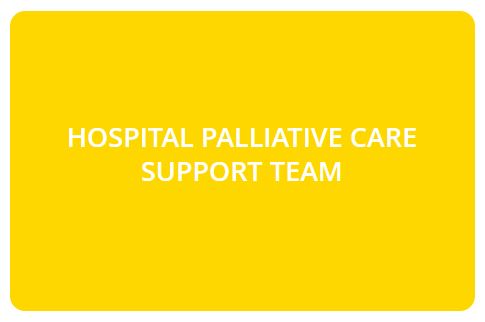Guide to hospices and palliative care
www.wegweiser-hospiz-palliativmedizin.de/en
VIDEO:
An Overview of support services regarding the care of seriously ill and dying people in Germany
PALLIATIVE CARE UNITS
Multi-professional teams alleviate the most severe symptoms
 Palliative care units are specialized hospital facilities for the care of people with an advanced life-limiting illness. The aim is to alleviate symptoms as far as possible and improve quality of life with the aim of being able to spend the remaining time of life in familiar surroundings as far as possible. In 2024, only 15% of hospitals in Germany have one of around 330 palliative care units nationwide.
Palliative care units are specialized hospital facilities for the care of people with an advanced life-limiting illness. The aim is to alleviate symptoms as far as possible and improve quality of life with the aim of being able to spend the remaining time of life in familiar surroundings as far as possible. In 2024, only 15% of hospitals in Germany have one of around 330 palliative care units nationwide.
SPECIALIST PALLIATIVE CARE HOME CARE SERVICE
Available 24 hours a day, seven days a week
 Since 2007, there has been a legal entitlement to specialized outpatient palliative care (SAPV). The 24-hour availability of SAPV teams seven days a week and the networked activities of professional groups trained in palliative care are essential to enable seriously ill patients to die with dignity at home, in inpatient care facilities or hospices.
Since 2007, there has been a legal entitlement to specialized outpatient palliative care (SAPV). The 24-hour availability of SAPV teams seven days a week and the networked activities of professional groups trained in palliative care are essential to enable seriously ill patients to die with dignity at home, in inpatient care facilities or hospices.
HOME AND SPECIALIST PALLIATIVE CARE
Home visits in the home environment and in nursing homes
 Doctors who provide special care for seriously ill and dying people in the home environment and in nursing homes. All doctors have completed at least a 40-hour basic course in palliative medicine and offer home visits.
Doctors who provide special care for seriously ill and dying people in the home environment and in nursing homes. All doctors have completed at least a 40-hour basic course in palliative medicine and offer home visits.
INPATIENT HOSPICES
A good place: care in a hospice
 Inpatient hospices are independent residential facilities for people with an advanced life-limiting illness. Holistic care and support is provided by full-time and voluntary hospice staff in collaboration with (general) practitioners experienced in palliative medicine in order to meet the needs of patients and their relatives. There are around 270 inpatient hospices nationwide (as of 2024).
Inpatient hospices are independent residential facilities for people with an advanced life-limiting illness. Holistic care and support is provided by full-time and voluntary hospice staff in collaboration with (general) practitioners experienced in palliative medicine in order to meet the needs of patients and their relatives. There are around 270 inpatient hospices nationwide (as of 2024).
OUTPATIENT HOSPICE SERVICES
Volunteers accompany the seriously ill and their families
 Outpatient hospice services support the seriously ill in spending the last period of their lives at home. The predominantly volunteer staff of around 1,500 outpatient hospice services provide advice on issues relating to outpatient care, work together with doctors and care services, support the family during the time of dying and also accompany relatives after the death of their family member. In 2024, around 100,000 volunteers will be active in hospice care throughout Germany.
Outpatient hospice services support the seriously ill in spending the last period of their lives at home. The predominantly volunteer staff of around 1,500 outpatient hospice services provide advice on issues relating to outpatient care, work together with doctors and care services, support the family during the time of dying and also accompany relatives after the death of their family member. In 2024, around 100,000 volunteers will be active in hospice care throughout Germany.
PALLIATIVE SERVICES IN HOSPITALS
Early advice and support in hospital
 A palliative service is a specialized team with different professional groups that offers palliative care for patients on all hospital wards. This care includes continuous and early palliative medical advice as well as supplementary co-treatment in the event of complex symptoms and needs.
A palliative service is a specialized team with different professional groups that offers palliative care for patients on all hospital wards. This care includes continuous and early palliative medical advice as well as supplementary co-treatment in the event of complex symptoms and needs.
PALLIATIVE CARE SERVICES
This includes: Cooperation with hospice services
 Many nursing services now also offer palliative care. Here you will find care services that employ one or more qualified palliative care nurses and cooperate with at least one hospice service.
Many nursing services now also offer palliative care. Here you will find care services that employ one or more qualified palliative care nurses and cooperate with at least one hospice service.
PALLIATIVE NETWORKS - COORDINATION ACC. §Section 39 D SGB V
Local networks and coordination
 The term “hospice and palliative care network” refers to the networking of hospice and palliative care providers in a region. This network organizes facilities and services that are available for the counselling, support, treatment and care of children, adolescents and adults with life-limiting illnesses as well as their relatives in the respective place of residence. The coordination of activities is aimed at providing high-quality care for those affected. Since 2022, hospice and palliative care networks have been increasingly established, expanded and legally funded.
The term “hospice and palliative care network” refers to the networking of hospice and palliative care providers in a region. This network organizes facilities and services that are available for the counselling, support, treatment and care of children, adolescents and adults with life-limiting illnesses as well as their relatives in the respective place of residence. The coordination of activities is aimed at providing high-quality care for those affected. Since 2022, hospice and palliative care networks have been increasingly established, expanded and legally funded.
OVERVIEW OF SERVICES FOR CHILDREN AND YOUNG PEOPLE
Separate section: Contact points for this age group
 Families of terminally ill children, adolescents and young adults can find contact points for this age group in a separate section.
Families of terminally ill children, adolescents and young adults can find contact points for this age group in a separate section.










